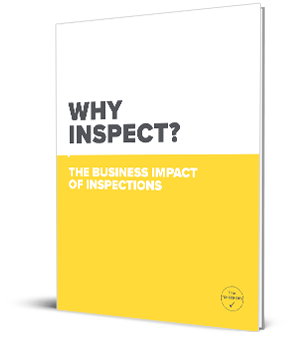Smart companies understand the benefits of a strong safety culture. Being safe increases productivity, lowers costs, and reduces exposure to liability and regulatory fines.
But these tangible benefits aren’t the only rewards of a strong safety program. Safe companies also have a marketing advantage. Conversely, safety lapses can lead to a marketing nightmare.
Being Safe Sends a Message
Particularly in B2B environments, potential clients and customers form a favorable impression of a business that has an impressive safety record and shows a genuine commitment to safety.
 When you embrace proactive approaches to safety, such as daily safety talks and mandated pre-use equipment inspections, it not only provides assurance that safety risks are minimized for anyone you serve, it reveals the character of your company.
When you embrace proactive approaches to safety, such as daily safety talks and mandated pre-use equipment inspections, it not only provides assurance that safety risks are minimized for anyone you serve, it reveals the character of your company.
When you focus on safety, prospects tend to form a couple of conclusions:
- Your company pays attention to detail. Safety is about diligent attention to detail, and that’s also what excellent customer service is about. If a company does safety well, it’s a sign that it possesses the organizational focus and attention to detail to deliver high value.
- Your company cares. When a company emphasizes safety, it shows concern for the well-being of its people, as well as the public. This suggests to prospects that a company will also have a genuine commitment to their well-being—not just in regards to safety, but also in providing high-quality products and services.
Setting a priority on doing things the right way when it comes to safety is one of the strongest indications possible that a company has its house in order—that it will do things right in all aspects of its operations.
That’s why companies that achieve notable safety records and have effective safety programs like to highlight their safety success and commitment in their marketing.
Poor Safety Damages Brands
The opposite is also true. Poor safety sends a negative message about a business’s capabilities to meet the needs of clients or customers.
That’s certainly true in B2C marketing. Whenever a company has to recall an item such as food, medicine, or cars, they suffer a significant marketing blow. Their consumer brand takes a real hit.
The same thing happens in B2B marketing, and safety lapses don’t even have to make the news for it to occur. Word gets around among industry peers, and wise companies check out the safety records and programs of companies they’re considering doing business with.
The construction industry is a perfect example. If a contractor develops a reputation for lax safety (e.g., accidents caused by unsafe equipment that wasn’t properly inspected), owners of construction projects will surely consider that safety history when deciding whether to give that contractor work.
Someone considering hiring them can’t be blamed for thinking: “If they’re unsafe, that could come back to bite me on the butt” and “If they’re not following safety procedures, what else aren’t they following? How do I know they’re not taking shortcuts in the construction process?”
In particular, companies that emphasize safety in their own operations will be reluctant to engage with companies that don’t. Beyond the immediate problems poor safety poses, safe companies realize insufficient attention to safety is usually symptomatic of deeper organizational issues that can affect performance.
I’m well aware that companies can turn things around after making safety-related mistakes. Sometimes realizing mistakes is just the wakeup call that’s needed to focus on improving safety.
However, there’s no denying that when safety problems at a company become known, it reflects poorly on that company, creating a marketing stigma that’s difficult to remove.
Takeaway
Businesses have an opportunity to distinguish themselves through their safety practices. Being safe is an indication of a high-performing enterprise, while companies that become known for inadequate safety face a significant marketing challenge.
Image courtesy of National Nuclear Security Administration, Creative Commons.










